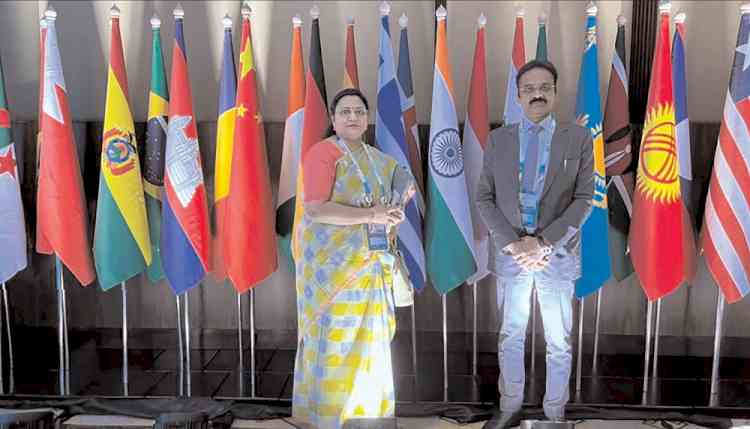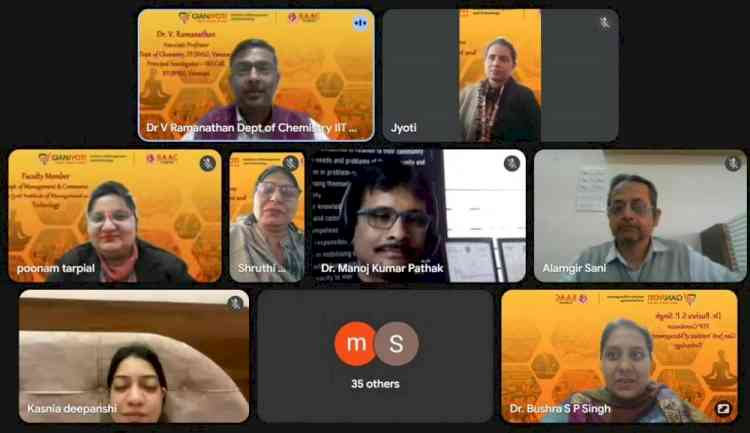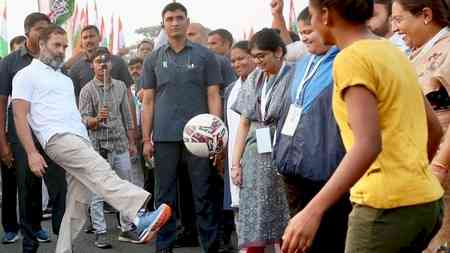Parliamentary Meeting Organized at the 10th World Water Forum by the Indonesian House of Representatives and Inter-Parliamentary Union
A parliamentary delegation, including Rajya Sabha members Dr.Ashok Kumar Mittal and Dr. Kanimozhi NVN Somu, has visited Nusa Dua, Bali, Indonesia, from May 19-21, 2024, to participate in the 10th World Water Forum of the Inter-Parliamentary Union (IPU)

Jalandhar, May 23, 2024: The World Water Forum is the world's largest event on water issues, held every three years. It brings together influential decision-makers and the international water community to foster collective progress in addressing critical water concerns. The IPU and the Indonesian House of Representatives are organizing this parliamentary meeting at the 10th World Water Forum. It provides an opportunity for lawmakers worldwide to promote legislation addressing water scarcity, improve parliamentary cooperation on increasing access to clean water, and inspire water-related actions for global security and prosperity. This event unites parliaments globally to enhance collaborative activities on water-related concerns, promoting information sharing, exchange of practices and experiences, networking, and partnership building.
During the plenary session, Dr. Ashok Kumar Mittal emphasized the integral relationship between water and climate change, noting that water, the essence of life, is crucial to our daily existence, economies, and the ecosystems that sustain our planet. However, the rapid changes in our global climate are threatening the continuity and availability of water. Expressing concerns over global warming and glacier melting, he highlighted that rising temperatures are altering atmospheric circulation patterns, leading to changes in rainfall, and causing severe weather events like storms, hurricanes, and floods. These events disrupt water supply infrastructure and contaminate water sources.
He also underscored the significant role played by international partners in solving water-related problems. He cited examples of India’s participation in managing shared water resources with neighboring countries such as Nepal, Bangladesh, and Bhutan through the India-Ganga Basin Cooperation and global climate agreements. India's involvement in global climate accords such as the United Nations Framework Convention on Climate Change (UNFCCC) demonstrates its commitment to collective action on climate change.
During the plenary session of the World Water Forum, Dr. Kanimozhi NVN Somu highlighted several initiatives undertaken by India to encourage nationwide rainwater harvesting and accelerate water conservation, including the Jal Jeevan Mission, Jal Shakti Abhiyan, National Water Mission, interlinking of Indian rivers, and the Dam Rehabilitation and Improvement Project. She also noted that with 5334 operational large dams and approximately 411 under construction, India ranks third in the world.
In her speech on Water Diplomacy, Cooperation, and Science for Peace, Dr. Kanimozhi expressed concerns about the unequal distribution and management of water, leading to conflicts and tensions in many regions. She stated that water diplomacy is a powerful tool for promoting cooperation and peace through science-based solutions. She shared her suggestions on effective water diplomacy, including data sharing and transparency, joint water management projects, stakeholder participation, climate change adaptation, legal and institutional reforms, and community-driven initiatives.


 City Air News
City Air News 











